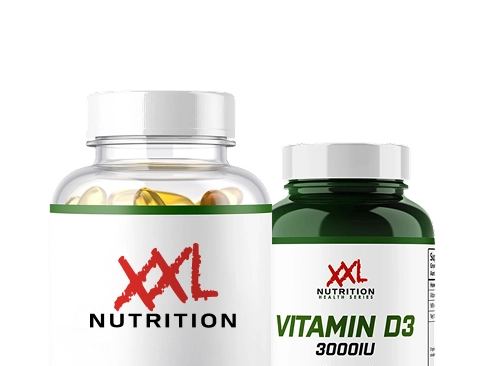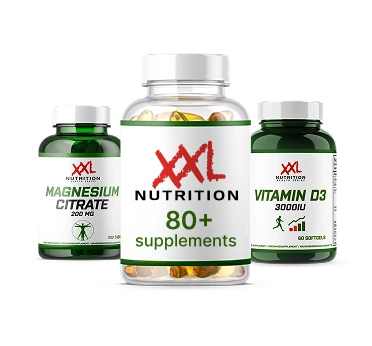Many people live with chronic diseases and are unaware of it. Most of these conditions—heart disease, diabetes, even early-stage cancer—start quietly, with no symptoms at all. By the time you feel something, the damage is often already done. That’s why health screenings and blood tests aren’t just routine—they’re critical. More than 70% of medical decisions rely on lab results.

So, which tests matter at 18? At 30? At 60? This guide answers those questions. Backed by clinical standards, it outlines the recommended blood tests by age—tailored by gender. Let’s dive in!

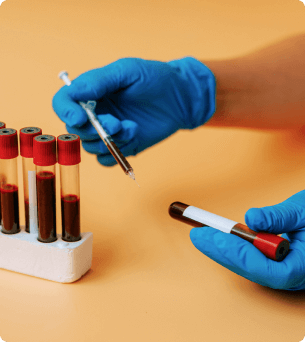
Standards and medical protocols for health screenings by age and gender
The recommended health screenings by age and gender rely on USPSTF, CDC, and WHO guidelines. These protocols consider your age, gender, and risk factors (like family history or lifestyle) to determine what tests matter most and when. The goal? Early detection, catching silent issues—like high cholesterol or elevated blood sugar—before they become major health problems.
When to start routine bloodwork
You don’t need to wait for symptoms. Most doctors recommend baseline blood tests starting at age 18, even if you feel perfectly fine. The recommended routine health screening typically includes:
- Complete Blood Count (CBC) – checks for anemia and infections.
- Lipid Panel – measures cholesterol and heart disease risk.
- Glucose or HbA1c – screens for diabetes.
- Basic Metabolic Panel – monitors kidney function and electrolyte balance.
If you have risk factors, your doctor may start testing earlier or more often.

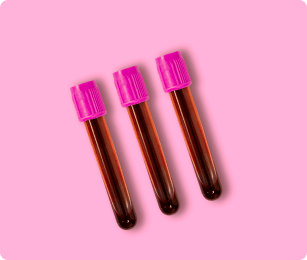
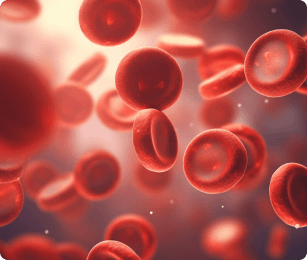

What should you do every year?
Regardless of age, some health screening for adults should be part of your annual routine:
- Blood pressure
- BMI and weight
- Mental health screenings for adults
- Vaccination review – flu, COVID-19, tetanus booster, etc.
- Vision and dental checks
- Basic lab screening tests for adults – especially if you have risk factors or ongoing concerns
These annual medical tests by age form the baseline for long-term health and help catch problems before they grow.

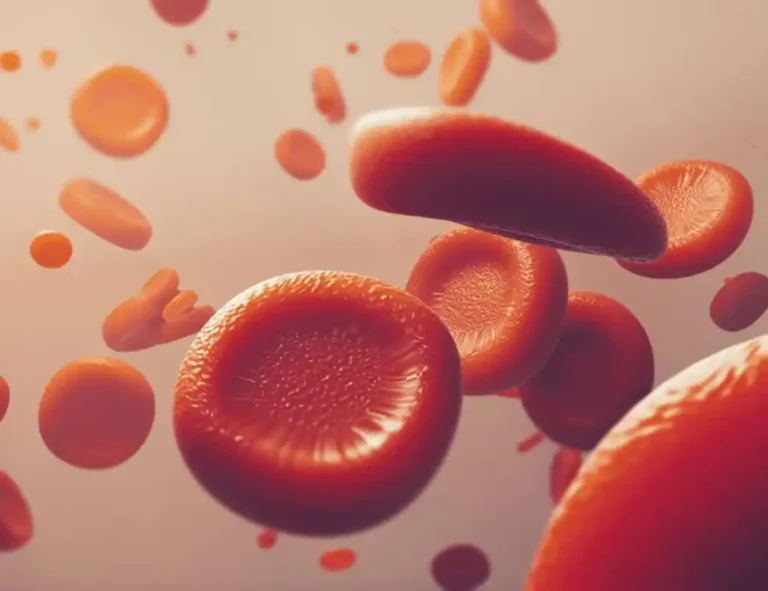
The most complete blood test. In addition to cardiovascular health, it also tests for the functioning of the organs, diabetes, and vitamin status.
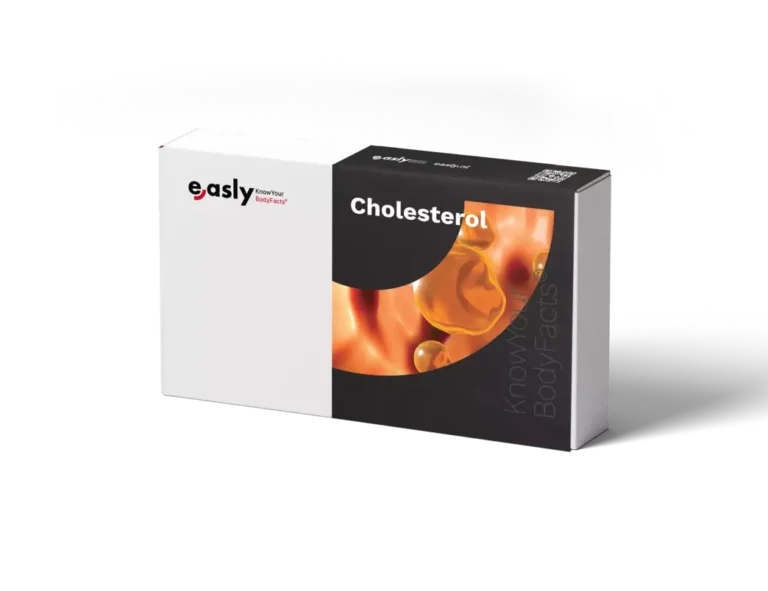
Recommended health screenings & blood tests by age 18 to 30
This age group is often overlooked regarding health screenings—but it shouldn’t be. Even if you feel healthy, this is the time to establish baselines and catch early signs of issues that often go unnoticed.
Women’s health check ups 18 to 30 years.
Here is women’s health screening by age 18 to 30 years.
| Test / Screening | Recommended frequency | Why it matters |
|---|---|---|
| Complete Blood Count (CBC) | Every 1–3 years | Detects anemia, infections, and overall blood health |
| Iron and Ferritin | As needed | Screens for iron deficiency, primarily due to menstruation |
| Thyroid Function (TSH) | Every 5 years or with symptoms | Checks for thyroid imbalance affecting energy, weight, and menstrual cycles |
| Lipid Panel | Start at age 20; every 4–6 years | Monitors cholesterol and cardiovascular risk |
| Blood Glucose / HbA1c | Every 3 years or with risk | Screens for prediabetes and insulin resistance |
| Pap Smear | Every 3 years (from age 25) | Detects early signs of cervical cancer |
| HPV-test | Usually added from age 30 | Screens for high-risk HPV strains linked to cervical cancer |
| STD Screening | Annually or as needed | Checks for chlamydia, gonorrhea, HIV, and more, based on sexual activity |
| Mental Health Screening | Annually | Detects early signs of depression, anxiety, and other mental health conditions |
| HPV Vaccination | If not completed by age 26 | Protects against strains of HPV linked to cervical and other cancers |
| Breast Self-Awareness | Ongoing | Encouraged for personal awareness, especially if high risk |
Men’s health check ups 18 to 30 years.
Here is what to consider for men’s health screening by age 18 to 30.
| Test / Screening | Recommended frequency | Why it matters |
|---|---|---|
| Complete Blood Count (CBC) | Every 1–3 years | Every 1–3 years Identifies anemia, infection, or blood disorders |
| Basic Metabolic Panel | Every 1–3 years | Assesses kidney function and electrolyte balance |
| Lipid Panel | Start at age 20; every 4–6 years | Tracks cholesterol and heart disease risk |
| Blood Glucose / HbA1c | Every 3 years or with risk | Helps catch prediabetes or type 2 diabetes early |
| STD Screening | Annually or as needed | Important for sexually active individuals |
| Testosterone (if symptomatic) | Case by case | Measured if there are signs of low testosterone (e.g., fatigue, low libido) |
| Blood Pressure & BMI | At least annually | Key markers for cardiovascular and metabolic health |
| Mental Health Screening | Annually | Helps identify issues like depression, anxiety, and stress-related disorders |
| HPV Vaccination | If not completed by age 26 | Prevents certain types of cancer and genital warts |
| Testicular Self-Exam | Self-monitoring | Encouraged for personal awareness, especially if high risk |
Recommended health screenings & blood tests by age 30 to 50
This is the stage when lifestyle-related risks start catching up—cholesterol, blood pressure, blood sugar, and even early signs of cancer. Regular health screenings by this age is critical for early detection and long-term disease prevention.
Women’s health screenings between 30 to 50.
Here are the recommended screening tests by age 30 to 50.
| Test / Screening | Recommended frequency | Why it matters |
|---|---|---|
| Complete Blood Count (CBC) | Every 1–3 years | Screens for anemia and general blood health |
| Iron and Ferritin | As needed | Important for women with heavy periods or fatigue |
| Thyroid Function (TSH) | Every 5 years or with symptoms | Identifies thyroid dysfunction affecting energy, metabolism, and reproductive health |
| Lipid Panel | Every 4–6 years (or more often if high risk) | Tracks cholesterol and heart disease risk |
| Blood Glucose / HbA1c | Every 3 years or more often if overweight | Helps detect insulin resistance or type 2 diabetes early |
| Vitamin D and B12 | As needed | Screens for common deficiencies that can cause fatigue, mood issues, and bone loss |
| Pap + HPV Test | Every 5 years (combined test) | More accurate cervical cancer screening by age of 30 |
| Mammogram | Every 1–2 years from age 40 | Detects early-stage breast cancer, especially if there is a family history of the disease present |
| STD Screening | Based on risk or symptoms | Recommended if changing partners or at increased risk |
| Blood Pressure & BMI | Annually | Monitors for hypertension and metabolic risk |
| Mental Health Screening | Annually | Especially important for women juggling careers, caregiving, and hormonal changes |
| Bone Density (DEXA) | Case-by-case (e.g., early menopause or risk factors) | Assesses risk of osteoporosis |
Men’s health screenings between 30 to 50.
The table shows the recommended health screenings by age 30 to 50.
| Test / Screening | Recommended frequency | Why it matters |
|---|---|---|
| Complete Blood Count (CBC) | Every 1–3 years | Checks for anemia and overall blood health |
| Basic Metabolic Panel | Every 1–3 years | Monitors kidney function and electrolyte balance |
| Lipid Panel | Every 4–6 years (or more often if high risk) | Critical for assessing heart disease risk |
| Blood Glucose / HbA1c | Every 3 years or more often if overweight | Screens for early-stage diabetes |
| Vitamin D and B12 | As needed | Identifies deficiencies linked to fatigue, cognitive decline, and low energy |
| Testosterone (if symptomatic) | Case by case | Evaluated if there are signs of low T (e.g., fatigue, weight gain, low libido) |
| Liver & Kidney Function Tests | Every few years | Screens for damage due to medications, alcohol use, or underlying conditions |
| Prostate Health / PSA | Starting at 45–50 if at risk | May be considered earlier with a family history of prostate cancer |
| Blood Pressure & BMI | Annually | Key markers for metabolic and cardiovascular health |
| Mental Health Screening | Annually | Addresses rising rates of depression and burnout in working-age men |
| Colorectal Cancer Screening | Starting at age 45 | New guidelines suggest earlier screening depending on risk factors |
Recommended health screenings & blood tests by age 50 & beyond
Health risks increase in this decade, and some conditions—like cancer, osteoporosis, and heart disease—can progress silently. That’s why routine screening and bloodwork are no longer optional but essential.
Women’s health screenings (50+)
Below are the woman’s medical tests recommended at age 50 and above.
| Test / Screening | Recommended Frequency | Why it matters |
|---|---|---|
| Complete Blood Count (CBC) | Every 1–2 years | Monitors anemia, infections, and overall blood health |
| Lipid Panel | Every 4–6 years (more often if needed) | Assesses heart disease risk as it increases with age |
| Blood Glucose / HbA1c | Every 1–3 years | Helps manage or catch diabetes early |
| Thyroid Function (TSH) | Every 3–5 years or with symptoms | Ensures metabolism and energy levels are regulated |
| Liver & Kidney Function | Every few years | Screens for age-related decline or medication-related organ stress |
| Vitamin D and B12 | Every 1–2 years or as needed | Prevents bone loss, fatigue, and cognitive issues |
| Bone Density Scan (DEXA) | Every 2–5 years, depending on results | Ongoing monitoring for osteoporosis, especially postmenopause |
| Mammogram | Every 1–2 years until age 74 | Continue breast cancer screening unless health status suggests otherwise |
| Pap + HPV Test | May stop after 65 if previous tests were normal | Based on history; consult with provider |
| Colorectal Cancer Screening | Up to age 75 (or later if healthy) | Colonoscopy or stool-based testing for early detection |
| Cognitive Health Screening | Annually from age 65 | Early identification of memory issues or dementia |
| Hearing and Vision Tests | Every 1–2 years | Age-related decline impacts independence and safety |
| Depression / Mental Health | Annually | Screens for isolation-related or late-life depression |
| Vaccination Review | As recommended | Shingles, pneumonia, COVID-19, flu, and tetanus boosters |
Men’s health screenings (50+)
Below are the medical tests recommended at age 50 and above for men.
| Test / Screening | Recommended Frequency | Why it matters |
|---|---|---|
| Complete Blood Count (CBC) | Every 1–2 years | Detects anemia, infections, or underlying chronic conditions |
| Lipid Panel | Every 4–6 years (more often if needed) | Monitors cholesterol and cardiovascular risk |
| Blood Glucose / HbA1c | Every 1–3 years | Manages diabetes and metabolic syndrome |
| Basic Metabolic Panel | Every few years | Tracks kidney function, sodium, potassium, and calcium levels |
| Liver Function Tests | Every few years | Screens for silent liver damage from alcohol, medication, or chronic illness |
| Vitamin D and B12 | Every 1–2 years or as needed | Helps with muscle function, memory, and energy |
| Bone Density Scan (DEXA) | Every 2–5 years if at risk | Osteoporosis can still occur in men, especially with low testosterone |
| PSA Test (Prostate Cancer) | Annually or as advised | Continued prostate health monitoring based on risk and life expectancy |
| Colorectal Cancer Screening | Up to age 75 (or longer if fit) | Essential cancer screening for aging men |
| Cognitive Health Screening | Annually from age 65 | Assesses for early signs of Alzheimer’s or other memory disorders |
| Hearing and Vision Tests | Every 1–2 years | Prevents falls and accidents and supports quality of life |
| Mental Health Screening | Annually | Depression and loneliness are common but often missed in older men |
| Vaccination Review | As recommended | Shingles, pneumonia, COVID-19, flu, and tetanus boosters |
Other considerations: family history, lifestyle, and personal risk
While age and gender form the basis for most screening schedules, they’re not the only factors that matter. Personal health history, daily habits, and genetic risk all play a role in determining what screenings you may need—and when.
For example, if you have a family history of heart disease, diabetes, or certain cancers, your doctor may recommend earlier or more frequent testing than general guidelines suggest. Lifestyle choices such as smoking, alcohol consumption, physical inactivity, or a high-stress routine can also increase your risk of chronic conditions, prompting more proactive monitoring.


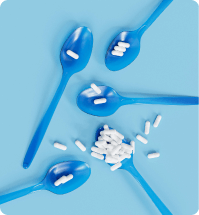
Your diet matters, too. If you follow a restrictive or plant-based diet, you may need more frequent checks for deficiencies in vitamin B12, iron, or vitamin D. Medications—especially those affecting the liver, kidneys, or hormone levels—may also require ongoing lab monitoring.
In summary
Age-based guidelines offer structure, but the most effective health strategy is personalized.
Start building healthy habits in your 20s, stay consistent with age-appropriate screenings in your 30s and 40s, and remain proactive well into your 50s and beyond. As your risk factors evolve, so should your screening plan—because waiting for symptoms often means catching problems too late.
With regular preventive health checkups such as offered by Easly’s self-tests, you can detect issues early and stay in control of your health at every stage of life.






